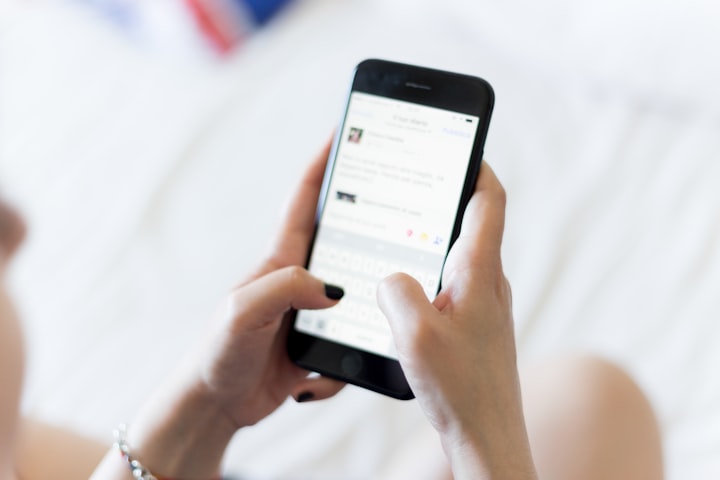How many hours We Should Use Our Smart Phone
How many hours We Should Use Our Smart Phone

When you're ready for a new smartphone, you may need at least one tracking app to keep track of the time you spend on your latest device. There is no way to know exactly how much time you spend on your device, but Google and Apple have built screen time tracking into our smartphones. If they can draw attention to the time we spend with our devices, we will have few problems.
According to screen time statistics for Americans, the average American spends just over 5 hours on his or her cell phone. According to the 2017 comScores Cross Platform Future Focus Report, US adults average spend 2 hours and 51 minutes on their smartphones each day. A separate study of eMarketer from 2016, which also included tablets, found that the total time spent on handheld devices reached 4 hours and 5 minutes per day.
According to US telephone use statistics, this number is estimated to reach 298 million by the end of 2021. The report goes on to say that the top 10 heaviest mobile phone users record an average of 5,427 contacts with their mobile phones every day. If you look at smartphone use in the US, statistics show that one in five US adults uses their smartphone to access the internet.
Statistics on the use of smartphones and apps show that in 2019 326 billion people social media was used on mobile devices, an increase of 10% over the prior year.
Smartphone users statistics show that most people spend more time on their phones during the week than at weekends. Recent data show that we spend average 3 hours and 15 minutes a day on the phone. According to average phone screen time statistics, younger and more educated people use smartphones the most.
Statistics on smartphone use show that 70% of mobile sessions are shorter than 2 minutes. If we break down the data of 11,000 users using RescueTime App, we can see that the top 20% of smartphone users have a daily screen time of over 4.5 hours.
You might think you'd spend more time surfing on your phone at weekends, but that's not the case. In fact, we have found that most people spend much more time on their phones during the week than at the weekend.
Smartphones are part of our daily lives and we spend a lot of our time on them. Unfortunately, many of us spend too much time at the screen, which can lead to stress, anxiety and general distraction from important things.
Yet people spend just 76,500 hours of their lives staring at mobile phone screens, or 8.74 years, the research found. With this in mind, I conducted a study and found that people spent an average of 9 years watching screens on their mobile devices. Based on the approximate age at which a user got a smartphone, they used it for an average of 30.7 hours ten years later.
The time the average mobile phone owner spends with the device has grown over the years. According to the report, in 2019 the average US adult spent two hours and 55 minutes on a smartphone, nine minutes more than in 2018. For US smartphone users, the time they spend on their device is three hours and 10 minutes a day.
Studies show that the average American checks his phone every 12 minutes and it's a safe bet that in the last few minutes you had a phone in your hand. Here we look at how much time on phones is spent compared to the early years of mobile technology, and how most mobile phone users use that time.
Research carried out a few years ago found that the average person spent about 90 minutes a day using their phone a decade ago. Today, they are estimated to spend five hours per day on their mobile devices and smartphones have become a critical part of our daily lives. An estimated 2.3 billion users touch their phones thousands of times a day.
Recent figures show that we spend several hours on the web at small screens and social media a day, and some experts are giving the alarm. Recent data shows that people spend 3 hours and 15 minutes a day with their phones. This brings with it a simultaneous increase in the time spent on phone screens.
Screen time is at a high level among American teenagers, according to Screen Time Stats for Americans. These 10 hours and 39 minutes of screen time include time spent on smartphones, tablets, video games, PCs, multimedia devices, TVs, radios, DVDs and DVRs and DVDs.
There is no magical number of hours recommended screen time for adults, but there is clear evidence that too much screen time can harm your health. If your phone, computer, or tablet is set to send you a weekly screen time report, you can figure out how many hours you type on the device with your eyes closed.
Research has shown that context change can kill our productivity, slow us down and make us feel rushed, overworked and prone to burn-out. We are still waiting for clarity on when to turn off our notifications and how much time we should spend on our phones. In the meantime, the time we spend with our digital devices continues to increase, but there is no need yet for conclusive research into why this is important.
If you want to make the best work possible, you need to control how your screen time affects the rest of your work. Rescuetime is a mobile app for Android that tracks your screen time and gives you deeper insights into how you use your device. When we looked at data from 11,000 users of ResuTime app, we found that the most people spend 3 hours and 15 minutes per day on their phones.
In the Digital Wellbeing section, users can access various statistics on daily and weekly phone use, as well as parental controls. You can also see how much time is spent on apps that set timers, daily limits, and individual websites. Android devices and Apple phones have the same statistics on phone usage, but the names of the tools and paths to find them differ.
In addition to displaying time spent in apps, parents can also set passcodes and secure settings that they can set for their children to limit screen time on certain apps and websites.
While these two companies would benefit from more time to connect our screens, the introduction of these features should be a wake-up call that overuse of these devices can be a real health problem.






Comments
There are no comments for this story
Be the first to respond and start the conversation.